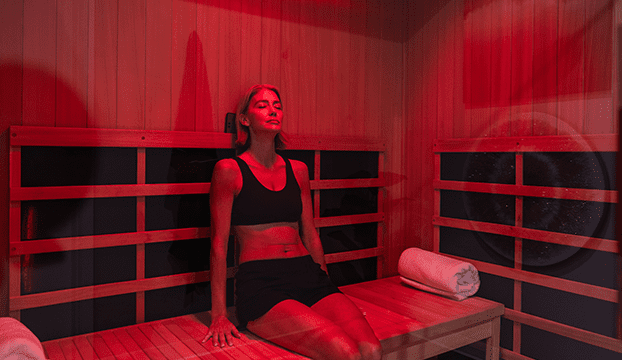What is Glutathione?
Glutathione is a substance made from glycine, cysteine, and glutamic acid. It is produced by the liver and is involved in many body processes. Glutathione is involved in tissue building and repair, making chemicals and proteins needed in the body and function.
What are the top Glutathione benefits?
Glutathione is a popular supplement for our guests as it offers a diverse range of benefits. It can help:
- Relieve muscle and joint pain
- Repair injuries
- Regulate inflammation
- Promote muscle protein synthesis and growth
- Lower risk of illnesses or infection
- Prevent muscle fatigue
- Increase energy
- Improve cardiovascular function
- Improve physical exertion and stamina
Glutathione can improve muscle performance
Following a workout, oxidative stress primarily impacts your muscles. It can cause muscle fatigue, which lowers the amount of force your muscles have. Because of this, the ability to make progress during exercise lowers and may need to be put on hold altogether.
The time it takes to repair tissue is also affected by lowered glutathione levels, resulting in more intense and longer duration of soreness, muscle and joint pain, and injuries. Glutathione supplementation fights this oxidative stress, decreasing muscle fatigue and aiding in the recovery for intense or endurance physical activity.
Glutathione helps with your natural energy
Energy production occurs within all cells (except red blood cells) via the mitochondria. Glutathione protects mitochondria from free radicals and the oxidative damage they cause. In this way, Glutathione is paramount to energy production.
If mitochondria are damaged, they slow down and make less energy. The affected “diseased” mitochondria lead to decreased bodily function and efficiency.
To make things worse, damaged mitochondria output more free radicals. In turn, these free radicals cause further mitochondrial damage and create a vicious cycle of less energy and more damage.
Glutathione binds these free radicals and relieves oxidative stress — not just on the mitochondria but also on the rest of the cell.
Glutathione helps boost your immunity
Glutathione helps your immune system stay strong and ready to fight infections. While vitamin C seems to get all the accolades for immunity, Glutathione is the under-recognized supporting actor who deserves the starring role.
Research shows that active Glutathione (GSH) primes white cells such as natural killer (NK) and T cells, your body’s front-line infection fighters. GSH-enhanced T cells can produce more infection-fighting substances, controlling bacterial and viral infections.
One clinical trial, in particular, found that GSH doubled NK cells’ ability to be cytotoxic (kill invaders) after just six months of use. Glutathione has a potent antibacterial effect as it helps the immune cells called macrophages fight the bacterium that causes tuberculosis, Mycobacterium tuberculosis.
In another study, researchers found that GSH modulates the behaviour of many immune system cells, affecting adaptive immunity and protecting against microbial, viral, and parasitic infections.
Glutathione fights inflammation
Inflammation has been a hot topic in the natural health world for the past decade; however, many people still don’t fully understand precisely why inflammation lies at the root of most health concerns plaguing Canadians today.
High levels of inflammation are present in virtually every chronic illness, like diabetes, heart disease, and cancer. However, inflammation is also healthy and necessary (in short bursts) to fight infectious invaders.
In the real world, environmental toxins, your diet, stress, and other lifestyle issues have disabled the checks and balances of this system, and inflammation doesn’t subside and go away as it is meant to. As a result, many people suffer from chronic, systemic inflammation.
When this happens, you’re in trouble. It would help if you had a lot of extra protection. That’s where Glutathione can help.
Glutathione (GSH) controls when inflammation increases or decreases as needed by instructing and influencing our immune white cells. This is an entirely separate mechanism from its antioxidant properties.
Rebalancing glutathione levels reduces chronic inflammation and restores immune function.
Glutathione has beauty and anti-aging benefits
Glutathione reduces oxidative stress in the body to improve your overall complexion. With glutathione treatments, you can see:
- Overall lighter, brighter skin tone
- Even skin tone with reduced dark spots
- Reduced blemishes
- Diminished acne scars
Glutathione gives you a youthful glow and smooth, even skin. Our high-quality treatments can also be combined with other services to enhance your look.
Glutathione helps with reducing oxidative stress
Oxidative stress occurs when there’s an imbalance between the production of free radicals and the body’s ability to fight them off. Too-high levels of oxidative stress may be a precursor to multiple diseases. These include diabetes, cancer, and rheumatoid arthritis. Glutathione helps stave off the impact of oxidative stress, which may, in turn, reduce disease.
An article cited in the Journal of Cancer Science and Therapy indicated that glutathione deficiency leads to increased levels of oxidative stress. It also stated that elevated glutathione levels raised antioxidant levels and resistance to oxidative stress in cancer cells.
How does Glutathione assist with your Brain Heath?
There is a clear link between low glutathione levels and decreased brain health.
As we age, it’s not uncommon to experience a bit of forgetfulness or difficulty concentrating. These are just two examples of neurodegeneration, a process by which the neurons in our brains become damaged and may even die.
This leaves us with “shrinking” brains that don’t function to their total capacity. While this process is unavoidable as we age, it can be slowed or even reversed, and Glutathione (GSH) plays an important role.
Accelerated neurodegenerative diseases, like Parkinson’s disease and Alzheimer’s disease, exhibit high levels of oxidative stress damage to the brain and low active glutathione (GSH) levels. GSH can ease and decrease the rate of damage to brain tissue.
Other neurological illnesses like Lyme disease weaken when your body experiences higher glutathione levels.
How does Glutathione affect your Heart Health?
The number one health-related cause of death in the United States is still a heart attack. A lesser-known fact is that Glutathione may prevent heart attack and other heart disease, thanks to its ability to neutralize the “lipid oxidation” (fat oxidation) process.
Virtually all heart disease starts with the accumulation of arterial plaque inside the artery walls. Bad cholesterol (LDL) is a lipid oxidized and damages the lining of the blood vessels, forming plaque (atherosclerosis).
When these plaques eventually rupture and break off, they can clog your blood vessels and block blood flow that causes heart attacks or strokes.
With the help of an enzyme called glutathione peroxidase, Glutathione stops the superoxides, free radicals, hydrogen peroxides, lipid peroxides, and peroxynitrites that cause this lipid oxidation and wreak havoc on your health.
In this way, Glutathione helps prevent damage and lowers the risk of heart attacks.
In a study of 643 cardiac patients who underwent coronary angiography in Germany, those who died of heart attacks had much lower glutathione peroxidase levels than those who survived.
If we don’t have enough Glutathione to neutralize damage to our arteries, we are at increased risk of heart disease and cardiovascular events.
How does Glutathione help with Autism?
1 in 59 children is diagnosed with Autism. It’s essential to do everything you can to alleviate the more harmful symptoms of autism spectrum disorder. Supplementing Glutathione should prevent oxidative stress every day in children dealing with Autism.
Low glutathione levels are a common finding in Autism, among other biomarkers. Promising new research shows that liposomal and transdermal Glutathione might help raise levels of GSH in plasma in children with Autism. Some evidence suggests that glutathione support may improve function in Autism, but double-blinded, large-scale studies are needed to support this scientifically.
Glutathione and Peripheral Vascular Disease.
Glutathione supplementation has been linked with reduced symptoms of peripheral vascular disease (PVD). PVD occurs when narrowed blood vessels do not supply enough blood supply to muscles when needed — most often muscles in the legs. Fatigue and pain with walking are hallmark symptoms of PVD.
In a double-blind study, 40 PVD patients were given IV infusions of either GSH glutathione or placebo, twice a day. The patients receiving GSH could walk pain-free much further than the patients receiving placebo injections.
In conclusion, glutathione represents a valuable ally for overall health. It offers a wide range of benefits. By combating oxidative stress, it contributes to reducing cellular damage, thus promoting recovery after exercise, strengthening immune defenses, and improving quality of life. Therefore, glutathione deserves to be considered a valuable asset for supporting health and well-being.



